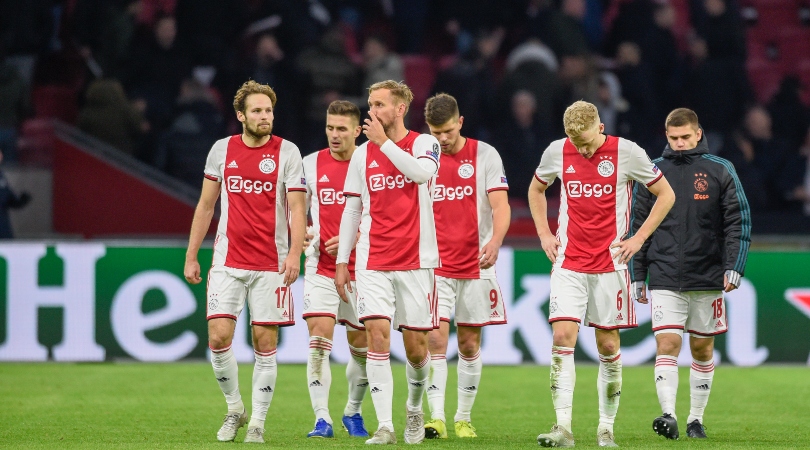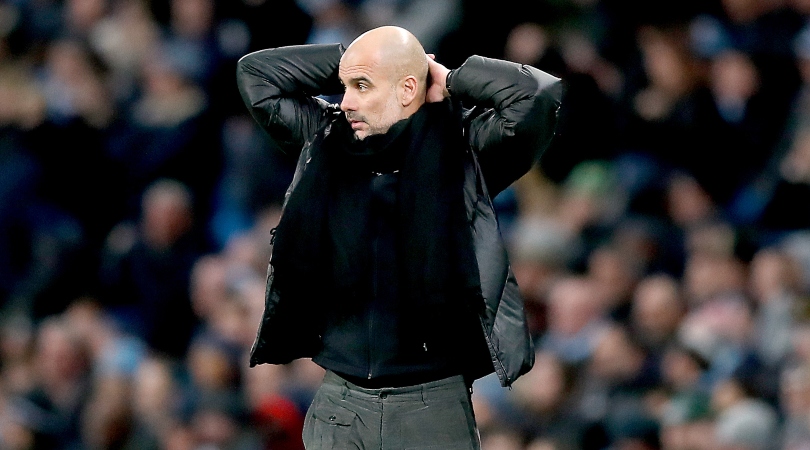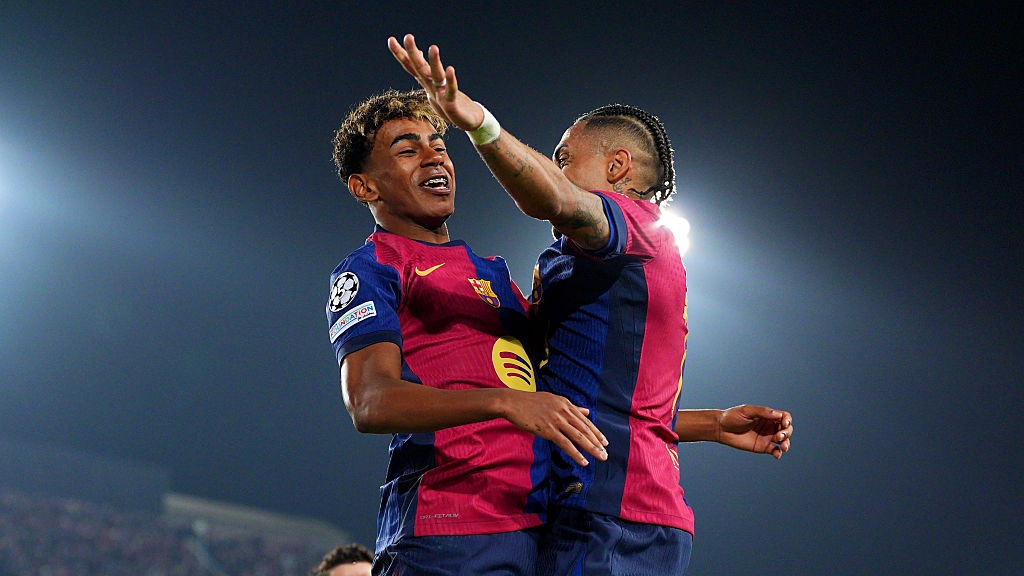Back to square one: Ajax are stuck climbing a ladder they can never reach the top of
Last season's Champions League semi-finalists lost Frenkie de Jong and Matthijs de Ligt over the summer, and didn't make it out of the group stage this time. It's a cycle they're doomed to repeat, writes Seb Stafford-Bloor

Over the summer, Ajax confronted a reality that they’ve had to become familiar with over the last few years. Any success ultimately leads to dismantlement and, so, their run to the Champions League final was followed – inevitably – by the kind of exodus which should really have set them back years.
Frenkie de Jong was sold, Matthijs de Ligt departed for Juventus, and Kasper Dolberg transferred to Nice.
Of that group, Dolberg hadn’t quite developed as expected – he’ll likely prove a good rather than outstanding forward – but De Ligt and De Jong are the kind of generational talents who don’t just reappear annually on the academy production line. This is who Ajax are, though. The Eredivisie’s diminished status makes these departures inevitable – imperative, really – and, from a technical standpoint, the club are stuck climbing a ladder which they can never reach the top rung of.
To make that point, it’s worth dwelling on the groups of players who have been lost in the past. Not as one-offs, but often within the same transfer period and in twos, sometimes even threes. Jan Vertonghen, Gregory van der Wiel and Vurnon Anita in 2012. Christian Eriksen and Toby Alderweireld in 2013. Arkadiusz Milik, Jasper Cillessen, Riechedly Bazoer and Anwar El Ghazi during the 2016-17 season and, in the summer of 2017, Davinson Sanchez, Davy Klaassen, Kenny Tete and Jairo Riedewald.
Some of those players were more important than others. Nevertheless, the way to estimate the cost of their departure is to consider the actual depth of the effect. When Eriksen and Alderweireld were sold, for instance, Ajax lost a playmaker and a centre-half, but also voided existing relationships in their defence and midfield, in addition to selling individuals who were, because of their talent, essential to the team’s sense of identity and collective confidence. It changed the way that side looked, but presumably also how it felt to play in it.
That came to mind on Tuesday night, when a cynical and increasingly passive Valencia performance was enough for a 1-0 win at the Amsterdam Arena and to send Ajax tumbling into the Europa League. It’s not such a meagre consolation, the overall standard of the tournament this year is poor and Erik ten Hag will fancy his side’s chances of going far, but the performance which took them there was bitterly disappointing and – also – descriptive of some of the subliminal issues that clubs of Ajax’s modern standing constantly have to fight.
Last year’s semi-finalists are out!
Ajax exit the Champions League after finishing third in Group H… pic.twitter.com/yB1KKnD0zM— Football on BT Sport (@btsportfootball) December 10, 2019
Valencia were canny on Tuesday night. They wasted time, they bought cheap free-kicks and they manipulated a weak referee. What was noticeable, though, was just how poorly Ajax dealt with that challenge. In fact, it wasn’t dissimilar to the way they capitulated to that terrible 4-4 draw at Chelsea a few weeks ago. In each instance the diagnosis was the same: talent can take you so far, but matches are won and lost on substance as well as ability.
Get FourFourTwo Newsletter
The best features, fun and footballing quizzes, straight to your inbox every week.
In the Valencia game, that manifested as rushed and disconnected football and panic. In the abstract, it betrayed a lack of communal faith in the team's ability. Ajax were technically better on an individual-by-individual basis, that had already been proven by their 3-0 win in the Mestalla, but when the pressure was on and the game came with real consequences, that advantage receded dramatically. Sixteen shots on goal taken, only three on-target; not just 'one of those nights', but the antithesis of what's required on a big European occasion.
But was that such a surprise? There was such comfort in having a De Jong-type player in the side, essentially a holding station for the ball, who could receive and distribute under all sorts of pressure. Or in de Ligt, who as well as being an excellent defender, possessed – even as a teenager – the talismanic virtues that a team needs when it finds itself in strife. How might he have calmed the pulse on Tuesday?
Unfortunately, this depicts one of the great problems European football currently faces. It’s something which will afflict RB Salzburg, too, if the gossip columns are to be believed. Talent appears and vanishes more quickly than ever. Fundamentally, that means that the spectacle is very brief and that Ajax-like clubs are under tremendous pressure to harvest their academies or loot from elsewhere.
The other consequence, though, is that – whether it’s recognised or not – clubs other than the select few are having to fight a battle of diminishing chemistry. They are never allowed to mature. When their finest players migrate away, not only is their ability being depleted, but the emotional tools and psychological harmony which allow them to succeed are being stolen away.
While you're here, why not take advantage of our brilliant subscribers' offer? Get the game's greatest stories and best journalism direct to your door for only £9.50 every quarter – just £2.90 an issue. Cheers!
NOW READ…
LIST Ansu Fati becomes youngest Champions League goalscorer – but what happened to the others?
QUIZ Can you name the 50 best teams ever in the European Cup/Champions League?
GUIDE Premier League live stream best VPN: how to watch every game from anywhere in the world
Seb Stafford-Bloor is a football writer at Tifo Football and member of the Football Writers' Association. He was formerly a regularly columnist for the FourFourTwo website, covering all aspects of the game, including tactical analysis, reaction pieces, longer-term trends and critiquing the increasingly shady business of football's financial side and authorities' decision-making.

